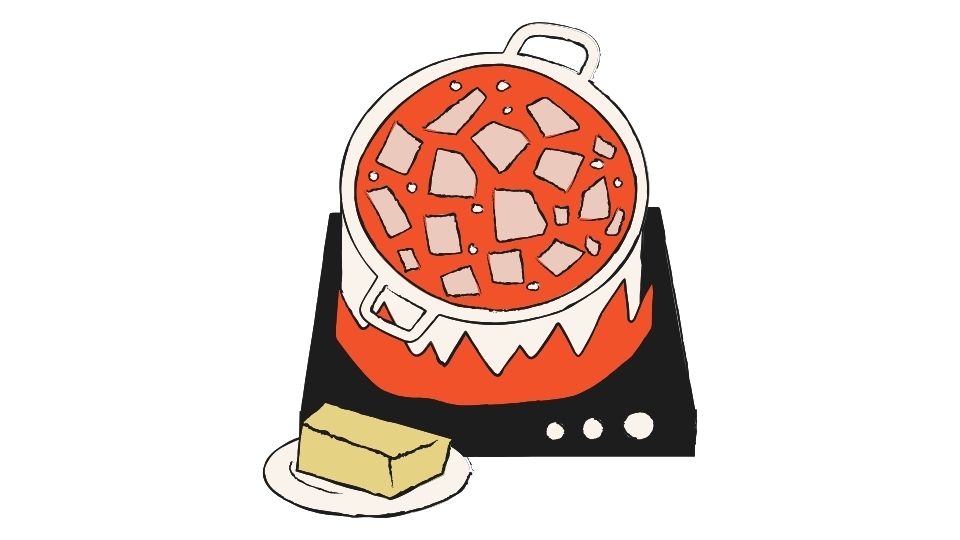Hormones control literally EVERYTHING in your body – from your energy levels to your mood to your weight and menstrual cycle.
And guess what? What you eat is one of the biggest factors that can either wreck your hormones or help them thrive.
I don’t know about you, but I want my hormones working FOR me, not against me. That’s where meal tracking comes in.
By keeping tabs on what you eat, you can spot patterns, identify triggers, and make sure you’re getting the nutrients your body needs to keep those hormones in check.
In this article, I’ll break down how meal tracking can help balance your hormones and give you some practical tips to get started. Because feeling like crap isn’t normal – even if it’s common.

Hormones 101: Why They Matter So Much
Hormones are basically chemical messengers that tell your body what to do. They regulate everything from your metabolism and growth to your reproductive system.
When your hormones are out of whack, you might experience:
- Fatigue (that 3pm energy crash? Might be hormonal!)
- Mood swings (hello, random crying at commercials)
- Weight gain that won’t budge
- Irregular periods
- Brain fog
- Sleep problems
And here’s the kicker – what you eat has a MASSIVE impact on your hormone production.
Food: The Ultimate Hormone Hack

Your body needs specific nutrients to make and regulate hormones. Eat the wrong stuff, and you’re basically telling your body “please make me feel terrible.”
Hormone-Friendly Foods:
Protein: Your body literally can’t make hormones without it. Eggs, chicken, lentils, and fish should be your best friends.
Fiber: Keeps your blood sugar stable and supports gut health (which is CRUCIAL for hormone balance). Think whole grains, veggies, and fruits.
Healthy Fats: Your hormones are made from fat! Avocados, olive oil, nuts, and fatty fish like salmon give your body the building blocks it needs.
Meanwhile, sugar, processed foods, and unhealthy fats can trigger inflammation that throws your hormones into chaos.
A study in the Journal of Clinical Endocrinology & Metabolism found that what you eat can affect your hormone levels within just hours. That’s wild!
How Meal Tracking Changes the Game
Look, I’m not suggesting you need to track every bite forever. But even short-term tracking can give you incredible insights into how food affects YOUR unique body.
Why Track Your Meals?
You’ll spot your personal triggers
Ever notice you feel bloated or moody after certain foods? Tracking helps you connect those dots and make better choices.You can ensure you’re getting enough nutrients
Most of us aren’t getting enough protein, fiber, or micronutrients that support hormone health. Tracking shows you where the gaps are.You can align your diet with your cycle (for women)
Your nutritional needs actually change throughout your menstrual cycle. Mind-blowing, right?You’ll understand your hunger and fullness cues better
Hormones control your appetite too! Tracking helps you recognize true hunger versus emotional or hormonal eating.
Best Practices for Hormone-Focused Meal Tracking
Don’t overcomplicate this. Start simple:
Track consistently for at least 2-4 weeks
This gives you enough data to spot patterns. For women, a full menstrual cycle is ideal.Note how you feel after meals
Energy levels, mood, digestive symptoms, sleep quality – these are all clues!Focus on macros, not just calories
Getting enough protein (at least 20-30g per meal) and healthy fats is crucial for hormone production.Stay hydrated
Even mild dehydration can mess with your hormones. Aim for half your body weight in ounces daily.
According to a study in the Journal of the Academy of Nutrition and Dietetics, people who track their food intake are more successful at making sustainable dietary changes.
Syncing Your Diet With Your Cycle (For Women)

Ladies, this is a game-changer. Your nutritional needs actually fluctuate throughout your menstrual cycle!
Menstrual Phase (Days 1-5)
Your energy is naturally lower during this time. Focus on:
- Iron-rich foods like spinach, lentils, and grass-fed beef to replenish what you lose
- Anti-inflammatory foods like berries, turmeric, and ginger to ease cramping
Follicular Phase (Days 6-14)
Estrogen is rising, and you’ll likely feel more energetic. This is a great time for:
- Fermented foods like yogurt and sauerkraut to support gut health
- Antioxidant-rich foods like colorful fruits and vegetables
Ovulatory Phase (Days 15-17)
Estrogen peaks, testosterone rises. You might notice:
- You need more calories now (seriously!)
- Your body handles carbs better
- Fresh, raw foods feel good
Luteal Phase (Days 18-28)
Progesterone rises, and PMS symptoms might appear. Combat them with:
- Magnesium-rich foods like dark chocolate, avocados, and nuts
- Complex carbs to support serotonin production
- B-vitamin foods like eggs and leafy greens
The University of California San Francisco has done extensive research showing that eating in alignment with your cycle can reduce PMS symptoms by up to 50%. That’s not a small improvement!
The Best Tools for Meal Tracking

While you could use a simple notebook, these apps make tracking WAY easier:
Cronometer
Great for detailed nutrient tracking beyond just macros.MyFitnessPal
Has the largest food database, which makes tracking quicker.Ate Food Journal
More focused on how foods make you feel than on calories.FitrWoman
Specifically designed to track food in relation to your menstrual cycle.
According to research from Stanford University, digital tracking tools significantly improve dietary adherence compared to traditional methods.
Real Talk: How I Approach Meal Tracking
Full disclosure: I don’t track my meals 24/7/365. That would drive me crazy. Instead, I do “tracking seasons” – usually 2-4 weeks at a time when:
- I notice my energy is tanking
- My sleep quality deteriorates
- My mood feels off
- My period gets irregular
This gives me enough data to make adjustments without becoming obsessive.
Remember, the goal isn’t perfect tracking – it’s better understanding of YOUR body and what it needs to thrive.
Common Mistakes to Avoid
Don’t get hyper-focused on calories
Hormone health is about nutrient quality, not just quantity.Don’t track forever
Use tracking as a learning tool, not a lifestyle.Don’t ignore your body’s signals
If you’re hungry but “out of calories,” your tracking system is failing you, not the other way around.
According to Harvard Health, focusing on food quality rather than just calorie restriction leads to better long-term hormone health.
Bottom Line: Your Hormones Deserve Attention

Look, we track our steps, our sleep, our screen time, and our spending – why not track the food that’s literally building our hormones?
Even a short period of consistent meal tracking can reveal patterns that help you feel dramatically better. And who doesn’t want that?
Is meal tracking a silver bullet? Nope. But it’s a powerful tool that puts you in the driver’s seat of your hormone health instead of just being a passenger along for the ride.
So give it a try – your hormones will thank you!




Leave a Reply